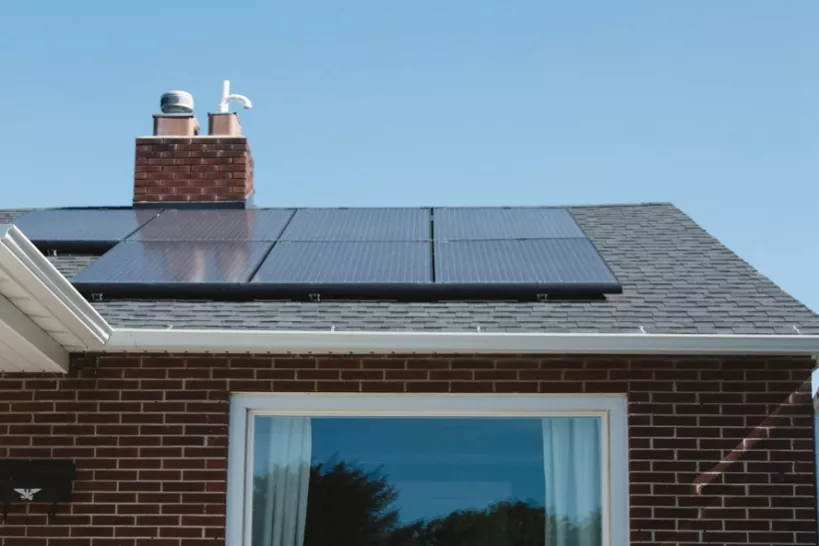Last updated: 8 December 2023
Next review: 8 December 2024
Image

As a Council, we are committed to helping residents lower their carbon emissions and reduce their energy bills. Solar panels are a great way to do this.
To help you understand if solar is for you, we have partnered with solar experts to give answers to the most common questions we received from you.
Solar PV: How it works
- Solar panels, also known as solar photovoltaics (PV), capture energy from sunlight to make electricity. This can be used to run your appliances and lighting. Solar PV needs light, but not direct sunlight, to work. They can still make some electricity on a cloudy day. Sunlight is free, so once installed, your electricity costs will be reduced.
The benefits of solar energy
- Cost savings: Solar typically reduces your electricity bill by a third, although your savings could be significantly higher if your roof has a high potential for solar. Check your home’s potential
- Lower your carbon emissions: Solar energy is renewable and has a much lower carbon footprint than other forms of energy.
- Energy security: Every unit of electricity generated by your panels replaces a unit of electricity from the grid. More local solar will help our overall energy system become more secure.
Cost: the economics are getting better
- The cost varies by installer and house, but a ballpark figure is £5,000. This cost covers the cost of installation, including the panels and labour costs. Adding a battery to store captured sunlight when you’re not using it roughly doubles the cost of installation – but also typically doubles your savings on annual electricity bills.
- There is a breakeven point where the savings made have ‘paid back’ more than the upfront cost of installation – and once you complete this payback period, the system effectively provides free electricity for the life of the panels.
- Solar also typically raises the value of your property by half of the upfront cost of installation according to a report by Solar Energy UK.
The lifespan of solar panels
- Solar panels typically have a warranty of 25 years, and panels will probably last longer. Once installed, solar panels require little maintenance, meaning that you will be producing electricity for a long time.
When planning permission is required for installation
- Most homes do not require planning permission as solar falls under ‘permitted development’.
- If you live in a conservation area, or the panels are installed above the highest part of the roof (excluding the chimney), you can still get solar but you will need planning permission. You can see what permitted development covers in section A.1
You get paid for excess electricity that you generate but don't use
- The Smart Export Guarantee (SEG) scheme ensures that you get paid for any electricity you don’t use. Solar Energy UK have a comparison tool to show the different rates offered by different energy companies
Find a registered installer and get multiple quotes
- Online: the certification body for the industry is the Microgeneration Certification Scheme (MCS), and any installer you consider should be MCS-certified.
- Use a comparison website: these can provide quotes from a range of solar companies operating in the area, all of which will be tailor-made for your roof. Getting a quote from 3 installer companies is a good way to ensure you’re getting the best deal possible:
- Solar power comparisons
- Otovo
- Solarguide
The installation process
- Typically takes 1 or 2 days – installation is usually a straightforward process. The installer will need to erect scaffolding to access your roof, but the installation itself is usually a one or two-day job and you don’t need to leave your home during the process. The roof should not be disturbed, and it is not necessary to remove your roof tiles to install the solar panels.
For more information
- The Energy Saving Trust advice page
- MCS ‘find a contractor’ tool
- Renewable Energy Consumer Code (RECC) consumer advice